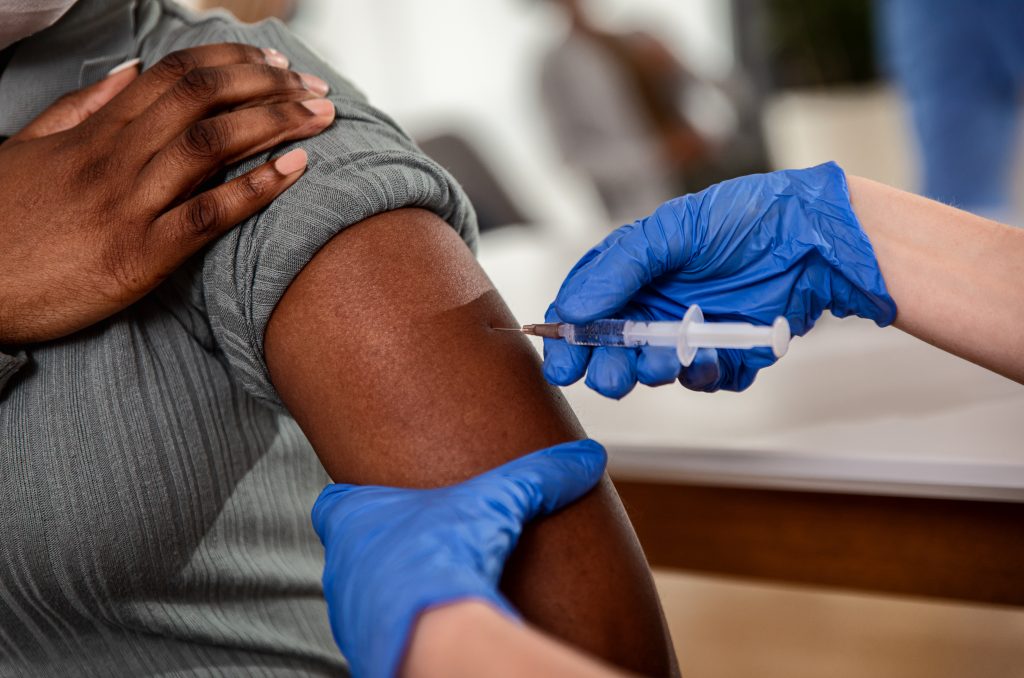March 11, 2021 marks one year since the World Health Organization classified COVID-19 as a pandemic. So far, the virus has infected more than 117 million individuals and caused about 3 million deaths worldwide, with nearly 30 million infected and over 525,000 deaths just in the United States alone. What lessons have we learned from Americans’ experiences and views about the pandemic during this past year?
PRRI 2020 early data shows that at the beginning of the pandemic most Americans were likely to avoid group activities as a result of the virus, including taking a cruise (81%), attending a concert or sporting event (80%), going to the movies (79%), getting on an airplane (79%), taking a train, including subways and other public transportation (78%), and going to a gym or health club (78%). Nearly three in four (74%) said they were likely to avoid going to a restaurant or bar, and nearly two-thirds (65%) said they were likely to avoid riding in a taxi, Uber, or Lyft due to the coronavirus threat.
By April 2020, very few Americans attended Easter services in person. PRRI data collected right before Easter shows that only 8% of Americans who attend religious services at least occasionally reported that where they primarily attend services was holding in-person gatherings for Easter or other religious holiday services. Among this group, the vast majority (61%) said they planned to attend online services, while only 3% said they planned to attend in-person services for Easter. About one-third (32%) said they did not plan to attend holiday services at all.
In August, PRRI estimated how the pandemic had affected religious communities based on where adherents live. Not all religious groups had been affected in the same way at that point. Hispanic Christian, Black Christian, and non-Christian religious groups were the most likely to live in areas hardest hit by COVID-19. An updated November analysis shows that these differences faded as the pandemic spread and rates of infection increased across the country. By late fall, most religious groups were equally likely to live in counties hardest hit by the pandemic.
PRRI’s American Values Survey found that even though the majority of Americans (60%) and majorities of most religious groups said that the coronavirus pandemic was a critical issue. The only religious group without a majority saying the pandemic was a critical issue was white evangelical Protestants (35%). More than four in ten Americans (44%) still favored (and 54% opposed) allowing churches and other religious organizations to continue to hold in-person services, even when the government has issued orders that limit social gatherings because of the coronavirus. Among at least occasional religious service attendees, nearly half (47%) said they felt less connected to their religious congregation since the beginning of the coronavirus pandemic, compared to 53% who said they either felt about the same (32%) or felt more connected (21%). Also, 23% of Americans agreed that “God always rewards those with a good health and will protect them from being infected by the coronavirus,” compared to the vast majority (76%) who disagreed.
The impact of the pandemic has gone beyond religious beliefs and economics. The American Values Survey data also showed that 37% of Americans experienced at least one economic hardship, including losing a job or having their hours or pay cut, and 14% of Americans or families have experienced at least one COVID-19 situation, including testing positive for COVID-19, gotten sick with COVID-19 symptoms, or being hospitalized with COVID-19. Further, 40% of Americans knew someone who had been hospitalized with or died of COVID-19 when the data was collected in September.
Most recently, a PRRI survey from January 2021 shows that Americans are divided on whether people who would otherwise be required to receive a COVID-19 vaccination should be allowed to opt out for religious reasons (48% support and 51% oppose). Majorities of white evangelical Protestants (65%) and Protestants of color (60%) favor religious exemptions for a COVID-19 vaccine. By contrast, less than half of white mainline Protestants (48%), white Catholics (43%) and religiously unaffiliated Americans (34%) favor religiously based COVID-19 vaccine refusals.
